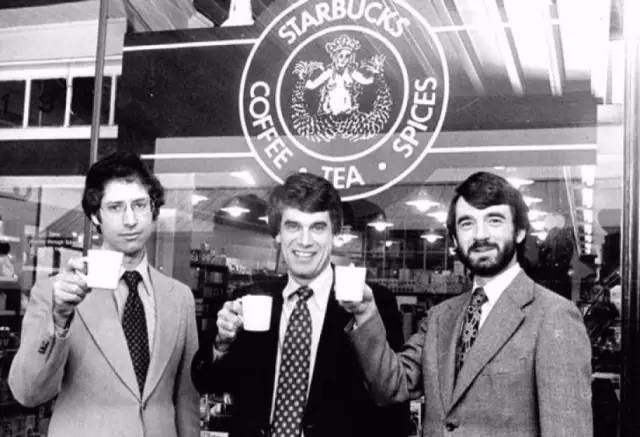Buys the American intellectual Peets Coffee & Tea's history coffee circle buzz
From eastern China, across nine time zones, to Berkeley, California (yes, the University of California, Berkeley is here). In 1966, Alfred Peet, a Dutchman, came here and thought it was full of Reiki and suitable for making coffee, so he founded Peet's Coffee, Tea & Spices locally.
Why did a Dutchman come to America?
This is about the story of Alfred Peet's childhood. He was born in 1920, when World War II broke out in his prime. His father ran a small bakery in the Netherlands that supplied coffee beans to the military, so Peet has been dealing with coffee since childhood. After the war, Peet left continental Europe to work as a teacup surveyor under Lipton in Indonesia. On the commonality between tea and coffee
In 1955, Peet emigrated to San Francisco to work for a raw bean import company in San Francisco. At this time, he found that most of the coffee beans imported by the United States came from low-grade "intermediate coffee" from Brazil and El Salvador and were very stale. At this time, American coffee has a title inherited since World War II, "foot wash".
How to open a shop?
These rotten coffee are completely different from the high-quality coffee from Costa Rica, Guatemala and East Africa that I knew when I was a child. Even if I imported these high-quality raw beans, there were no customers to buy them.

With the characteristics of "freshly roasted, high-quality raw beans, deep roasting and choking fragrance", Alfred Peet has become the godfather of American boutique coffee (the godmother is Erna Knutsen). Before him, no one had extended the concept of "boutique coffee" to the whole country on this scale. Within 10 kilometers of the editor, there are two Peet's in Philadelphia. As a so-called "boutique cafe", this scale is simply appalling.
Where is the great place?
It has been 49 years since the first Peet's in 1966, and now Peet's has 200 stores and 4000 employees. In 2011, Peet's 's market capitalization was $636 million, which is 2.3% of Starbucks's market capitalization over the same period.
If that's all, it shouldn't be enough to explain the greatness of Peet. "it's only 2.3% of Starbucks," but what if I say Starbucks inherits Peet?
When Peet became famous, he didn't forget to receive his apprentice. Jerry Baldwin, Zev Siegl and Gordon Bowker inherited the deep baking style of Peet, and then the three men founded Starbucks in Seattle and passed on Peet's baking philosophy to this day. Although the success of Starbucks is not due to these three people, and it is doubtful whether Starbucks has inherited the "boutique coffee", as the foundation, Starbucks coffee beans come from the hands of Peet.
Well, we finally got to these two questions.
Is Starbucks a boutique coffee?
Is Peet's a boutique coffee?
The first question is not too much to elaborate on here. Even though Starbucks has recently begun its so-called "success" at the store level, it is still an out-and-out crap in terms of coffee quality. The editor really does not understand why teacher Han Xizong classifies Starbucks as "the second wave of coffee boutique" in "boutique XX". The editor has doubts as to whether Starbucks has inherited the baking essence of Peet, and does not rule out the possibility of walking and running.
The second question is that the editor has no conclusion. The editor has not had a chance to taste Peet's 's coffee since he came to the United States, but I would like to raise a question here: the degree of boutique of Peet's may not be high. The editor has never opened a coffee shop, but there is one truth that everyone knows: quality is inversely proportional to quantity. As a "boutique cafe", Peet's can open more than 200 stores in the United States, can it really guarantee that quality will not be sacrificed? The editor will fill this hole for you in the near future. Please wait and see.
Despite doubts and shortcomings of one kind or another, the contribution made by Peet's and Starbucks to the coffee industry cannot be ignored. Perhaps they can not be said to have done a good job, at least, there is great progress, without them, the next real "boutique" is impossible, where is there a place for us coffee people?
Alfred Peet died of illness in Oregon on August 29th, aged 87
Coffee industry in the United States and Europe was shocked by it.
Alfred Peet is recognized as the forerunner of the "coffee revolution"
Over the past few decades, both Peet's and Starbucks have changed, acquisitions, restructuring, leadership changes and natural death, we can no longer speculate from the current situation of the Coffee Man's story 40 years ago. In the new era of coffee, we are growing, and so are the two of them. Starbucks acquired Clover automatic brewing system, started the construction of Zhenxuan store in China, and opened Seattle Starbucks Zhenxuan roaster ™in the United States. Peet's has made various corporate acquisitions. The recent acquisition of Shudun City boutique cafe, which detonated the coffee circle, is a big step forward. Before that, Peet's also acquired a famous boutique teahouse in the Bay area, Peet'. S boutique may have been moving forward at a slow and firm pace, I can still see the shadow of Alfred Peet in this coffee brand, "boutique, quality, service".
Important Notice :
前街咖啡 FrontStreet Coffee has moved to new addredd:
FrontStreet Coffee Address: 315,Donghua East Road,GuangZhou
Tel:020 38364473
- Prev

Vega, a new generation of pioneers in the field of boutique coffee, changes ordinary consumers and coffee cultivation.
Coffee is our beloved, and global coffee consumption has nearly doubled in the past 40 years, with an average of 2.25 billion cups of coffee consumed every day, of which about 400 million cups are consumed in the United States alone. But do you know where coffee comes from, how it is made, and how it becomes a delicacy in our cups? In order to change the mass consumer
- Next

The mode of "Internet + Coffee Shop", which mainly serves door-to-door distribution service, has become popular in Beijing area.
Quantum foam Coffee, which focuses on door-to-door delivery service, was established in April this year and entered Wangjing SOHO in June. In less than three months, Quantum foam has become popular in the Beijing area with the model of Internet + coffee shop, realizing the networking of traditional coffee shops. Founder Li Jun said: quantum foam coffee mainly focuses on the light and high-end concept, what we need to do is a better cup of coffee and a trend.
Related
- The ceremony is full! Starbucks starts to cut the ribbon at a complimentary coffee station?!
- A whole Michelin meal?! Lucky launches the new "Small Butter Apple Crispy Latte"
- Three tips for adjusting espresso on rainy days! Quickly find the right water temperature, powder, and grinding ratio for espresso!
- How much hot water does it take to brew hanging ear coffee? How does it taste best? Can hot water from the water dispenser be used to make ear drip coffee?
- What grade does Jamaica Blue Mountain No. 1 coffee belong to and how to drink it better? What is the highest grade of Blue Mountain coffee for coffee aristocrats?
- What are the flavor characteristics of the world-famous coffee Blue Mountain No. 1 Golden Mantelin? What are the characteristics of deep-roasted bitter coffee?
- Can I make coffee a second time in an Italian hand-brewed mocha pot? Why can't coffee be brewed several times like tea leaves?
- Hand-brewed coffee flows with a knife and a tornado. How to brew it? What is the proportion of grinding water and water temperature divided into?
- What is the difference between Indonesian Sumatra Mantinin coffee and gold Mantinin? How to distinguish between real and fake golden Mantelin coffee?
- What does bypass mean in coffee? Why can hand-brewed coffee and water make it better?

